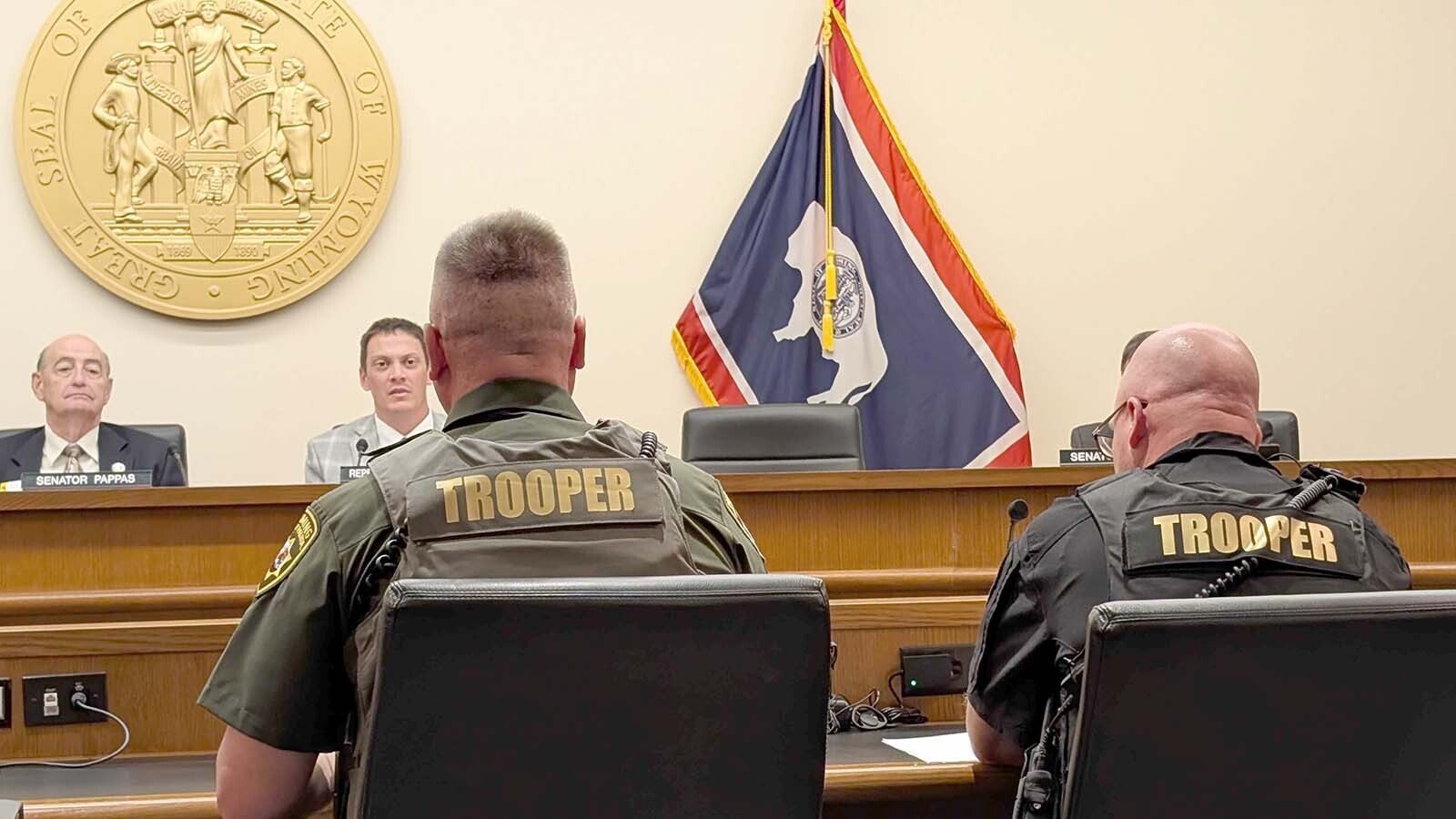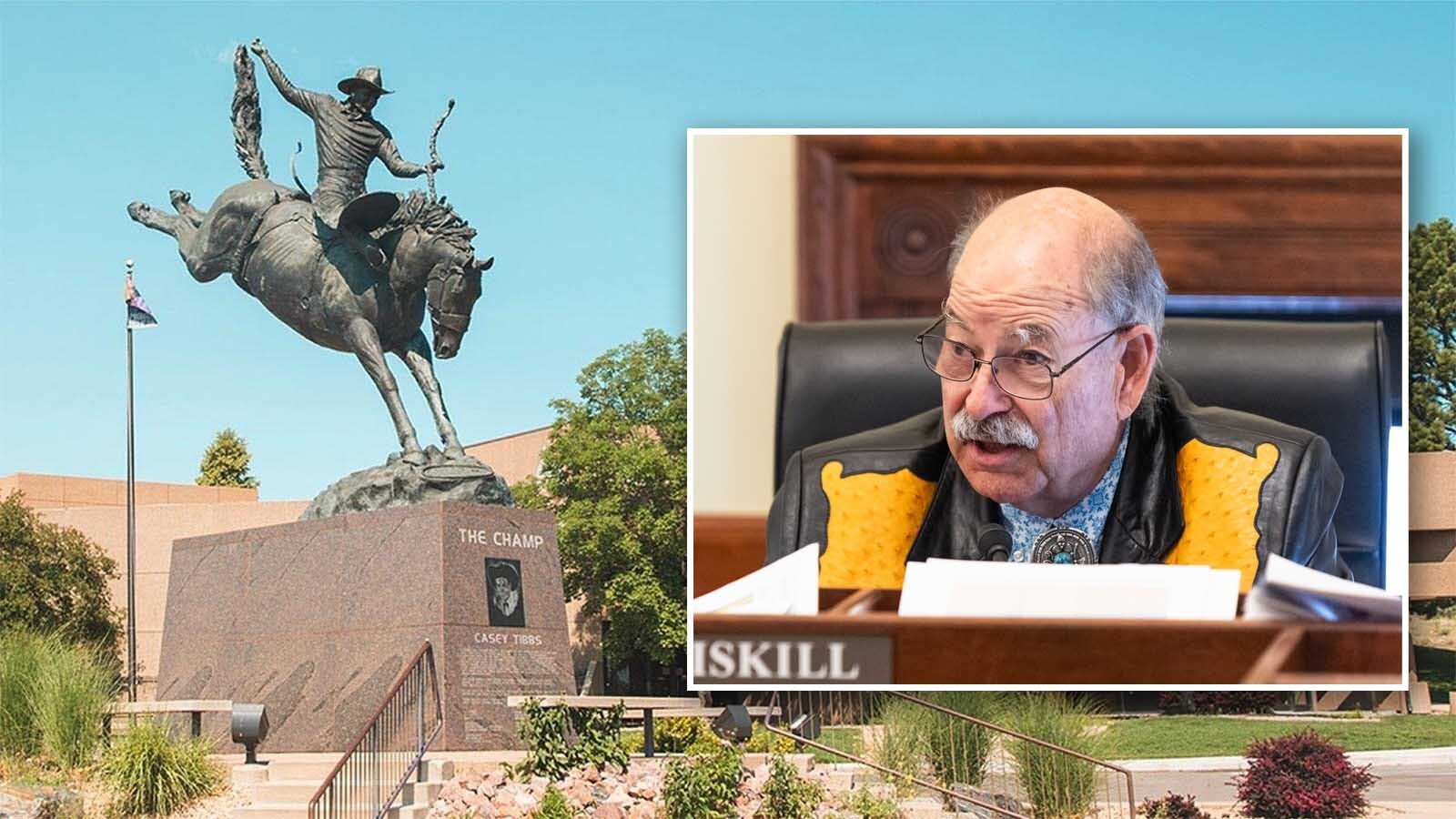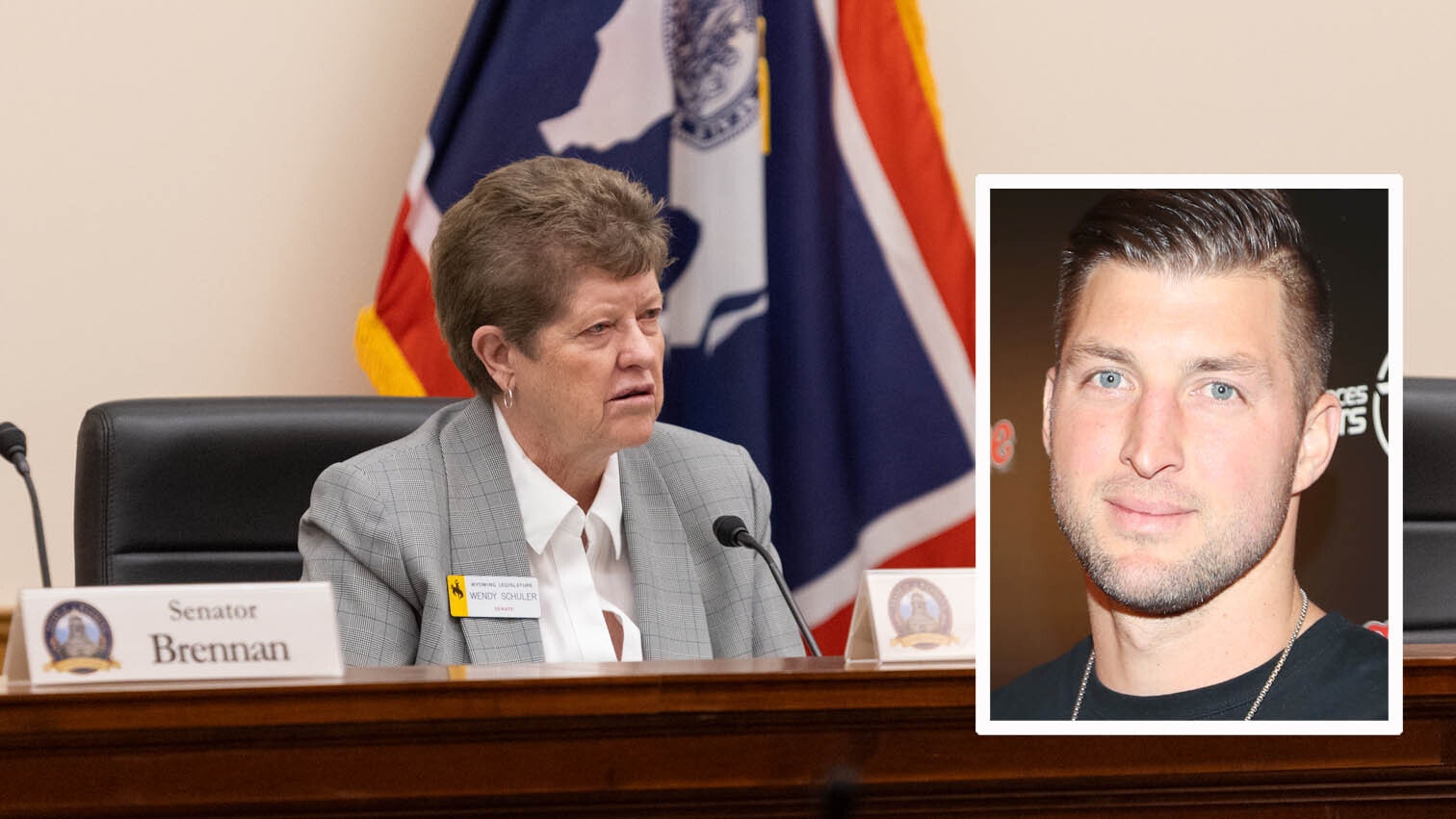A Wyoming legislative committee meeting in Cheyenne on Monday adopted a draft bill to give all state law enforcement officers the authority to ticket commercial truckers caught driving without being proficient in the English language.
The Transportation, Highways and Military Affairs Committee’s 11-1 vote to sponsor the bill gives the legislation an edge going into the 2026 budget session, which opens Feb. 9.
But the bill will still have to clear a two-thirds vote to pass introduction, since it’s not budget legislation.
Rep. Bob Nicholas, R-Cheyenne, was the lone nay vote during Monday’s meeting. He did not immediately respond to a message request for comment on the reasons for the nay vote.
During the meeting, however, Nicholas premised some of his questions to those testifying on whether lawmakers could tailor the bill to target trucking companies, brokers, or other corporate actors who court and hire non-English-speaking drivers, rather than imposing criminal penalties on truckers themselves.
It was a concern Kevin Hawley, president of the Wyoming Trucking Association, also voiced, along with his support for the bill.
“I would argue that we need to hold more than the driver accountable for such infractions,” said Hawley.
Passing English proficiency legislation, “isn’t racism,” he said. “This isn’t picking on; this isn’t targeting — it’s about safety.
“The challenge isn’t always, but in many of the situations, some of these drivers are being taken advantage of.”
Yet, added Hawley, with Wyoming being within the top three states in holding non-English proficient truckers to the federal rule that’s already in place the draft bill sends a message to bad-actor brokers.
Two members of the committee were marked excused from the vote: Sen Ed. Cooper, R-Ten Sleep, and Rep. Reuben Tarver, R-Gillette.

Hot Issue
The issue of non-English proficient truck drivers exploded into the news this year.
President Donald Trump issued an executive order in April calling for the reversal of Obama-era guidance that had crippled the English proficiency requirements the federal rules imposed on truckers prior to 2016.
That order came into effect in June.
Between June 25 and Oct. 15, the Wyoming Highway Patrol’s federally-certified inspectors have pulled 497 non-English proficient truckers from the roads, the agency testified Monday.
In Congress, Rep. Harriet Hageman and Sens. John Barrasso and Cynthia Lummis, all Republicans of Wyoming, have co-sponsored variations of “Connor’s Law” to codify the agency rule requiring trucker English proficiency into federal law.
As Drafted …
If it becomes law, the Wyoming bill that advanced Monday would let any Wyoming law enforcement officer fine a non-English-speaking trucker $1,000 for the first offense and ban the trucker from driving a commercial vehicle in the state until he could show proficiency in the English language.
A trucker caught driving while banned would face a $1,000 fine and up to 90 days in jail, under the current draft.
Before the Wyoming Highway Patrol asked the committee for significant changes, the bill also contemplated $3,000 in civil fines against motor carriers that send non-English-speaking truckers into Wyoming.
It also would have required the officer issuing the citation to “immediately hold” the truck, notify the carrier of its location, and potentially arrange new transport modes with the cargo’s owner.
None of that is feasible, WHP Lt. Kyle McKay told the committee.
“Currently (the Wyoming Department of Transportation) or Highway Patrol does not have a civil assessment process,” he said. “That's why we changed that from civil to criminal.”
The committee accepted the department’s recommendations and adopted those in an amendment.
Wyoming brings other challenges to coordinating alternate transportation or civil penalties, WHP Capt. David Wagener told the committee.
“(As a) Wyoming trooper, I could be on a night shift in a Wyoming winter blizzard, and sometimes be the only person in that area,” said Wagener. “You could get sent to 20-plus crashes in the scope of one shift.”
In such scenarios, the priority is in keeping the road open and dealing with all the crashes, he said.
“(Making a) manager come out in a blizzard and provide $3,000 to get that load and that vehicle released is not practical,” added Wagener.
Still $1,000
Rep. Lloyd Larsen, R-Lander, proposed an amendment to take the first-offense fine down from $1,000 to $200.
The driver “is probably basing his understanding or his proficiency on those people he’s working for,” said Larsen. “We pull him over and we can see that he’s functioning at a different level than what we’d like him to, I don’t know that that’s fully his fault. It may be. But we don’t know that always.”
The committee majority rejected Larsen’s amendment and kept the first-offense fine at $1,000.
Another topic with which the committee grappled was whether to enact a state-specified English proficiency test method, or lean on the federal rules.
Drawbacks surfaced with either route.
Rep. Rob Geringer, R-Cheyenne, noted that if Wyoming deferred to the federal government to make the standards, then it could deviate from its own people’s preferred methods during a later, different administration than the current one.
Sen. John Kolb, R-Rock Springs, said it would be better to lean on the federal methods for now, then amend later if things change.
Committee Co-Chair Rep. Landon Brown, R-Cheyenne, said setting up state law to contrast a future, potential change in federal rules could risk the Wyoming Department of Transportation’s access to federal money.
“I don’t want to be in a position where we risk losing $40, $50 million in funds for our highways because an administration decided to (make rules opposing state law),” he said.
Clair McFarland can be reached at clair@cowboystatedaily.com.





